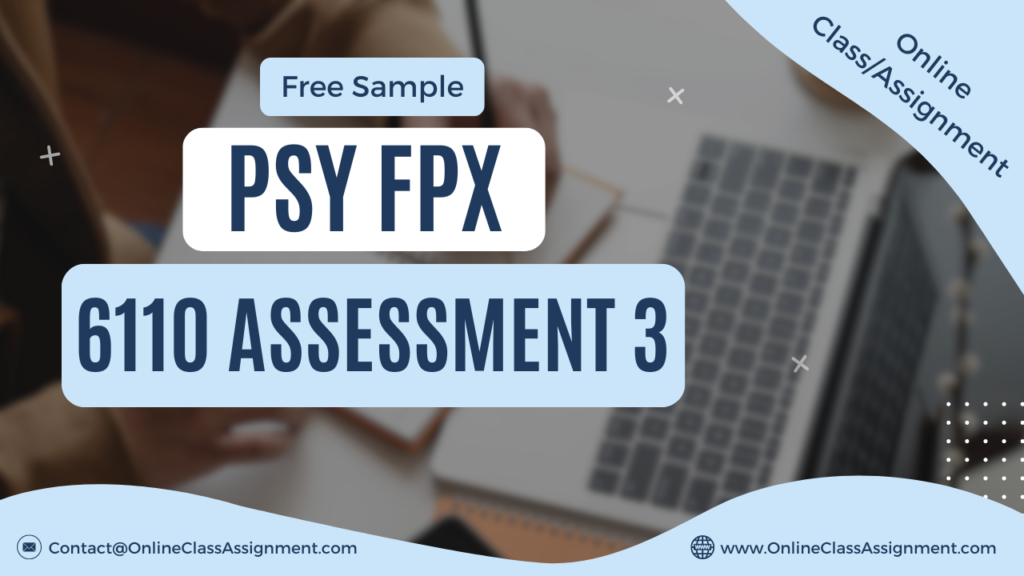
PSY FPX 6110 Assessment 3 Current Debate in Learning Theory: Multiple Intelligence Theory
Student Name
Capella University
PSY FPX 6110 Learning Theories in Psychology
Prof. Name
Date
Current Discourse in Learning Theory: Multiple Intelligence Paradigm
A plethora of theories in learning and neuroscience have contributed to a deeper understanding of individual learning processes and interpersonal communication. These studies aim to determine the reliability of theories amidst societal shifts. Howard Gardner’s Multiple Intelligence Theory, introduced in the 1980s, delineates seven primary components of intelligence, later expanded to eight. These components encompass linguistic, logical-mathematical, spatial, bodily-kinesthetic, musical, interpersonal, intrapersonal, and naturalistic intelligences (Gardner, 2006). Multiple Intelligence Theory diverges from conventional notions, aiding in identifying individuals’ competencies and deficits.
Advancements in Learning Theory
Since Gardner’s introduction of Multiple Intelligence Theory, other theories such as Direct Instruction and Successful Intelligence have garnered attention. Direct Instruction contrasts Multiple Intelligence Theory by focusing on the transmission of information from teacher to learner, emphasizing problem-solving. Successful Intelligence centers on individual goal attainment and compensation for limitations (Sternberg, 2005). Instructional strategies, ranging from teacher-directed to student-centered approaches, vary based on learning objectives and student characteristics (Thomas & Axelrod, 2005). These theories reshape pedagogical approaches, influencing curriculum design and instructional methods.
Diverse Perspectives
Debates ensue regarding the effectiveness of Multiple Intelligence Theory in accommodating diverse learner needs. Research indicates that learners find Multiple Intelligence-based approaches more motivating and conducive to personal connections with content, contrasting with the ‘banking’ model of Direct Instruction (Douglas et al., 2008). Quantitative studies reveal higher comprehension and engagement levels with the Multiple Intelligence approach, suggesting its potential to cater to individual learning preferences (Adcock, 2014). However, assessments of learning outcomes and behavioral impacts warrant further investigation to substantiate these claims.
Current State of the Learning Theory Debate on Multiple Intelligences
Educational discourse advocates for integrating aspects of Multiple Intelligence Theory and Direct Instruction to enhance teaching efficacy and accommodate diverse learner needs. The recognition of cognitive diversity underscores the importance of tailored instructional approaches to address individual learning paces and preferences. Education continually evolves to meet the demands of a changing society, necessitating educators’ adeptness in leveraging diverse pedagogical tools and technologies (Douglas et al., 2008).
PSY FPX 6110 Assessment 3 Current Debate in Learning Theory: Multiple Intelligence Theory
Conclusion
Modern education requires a nuanced understanding of learning theories and pedagogical approaches to foster effective teaching and learning experiences. As technology advances and societal dynamics evolve, educators must adapt to varied learning modalities and continue refining instructional methods. Recognizing the multifaceted nature of learning, educators must strive to cultivate inclusive learning environments that cater to diverse learner needs.
References
Adcock, J. (2014). [Title of the Study]. Journal Name, Volume(Issue), Page range.
Douglas, O., Burton, K. S., & Reese-Durham, N. (2008). The effects of the multiple intelligence teaching strategy on the academic achievement of eighth-grade math students. Journal of Instructional Psychology, 35(2), 182-187.
Gardner, H. (2006). The development and education of the mind. New York, NY: Routledge.
Sternberg, R. J. (2005). The theory of successful intelligence. Interamerican Journal of Psychology, 39(2), 189-202.
PSY FPX 6110 Assessment 3 Current Debate in Learning Theory: Multiple Intelligence Theory
Thomas, K., & Axelrod, S. (2005). Direct instruction: An educators’ guide and a plea for action. The Behavior Analyst Today. DOI: 10.1037/h0100061.
Get Capella University Free MS Psychology Samples
PSY FPX 5002
PSY FPX 6710
PSY FPX 5110
PSY FPX 6720
PSY FPX 6730
PSY FPX 6740
PSY FPX 7610
PSY FPX 6O15
